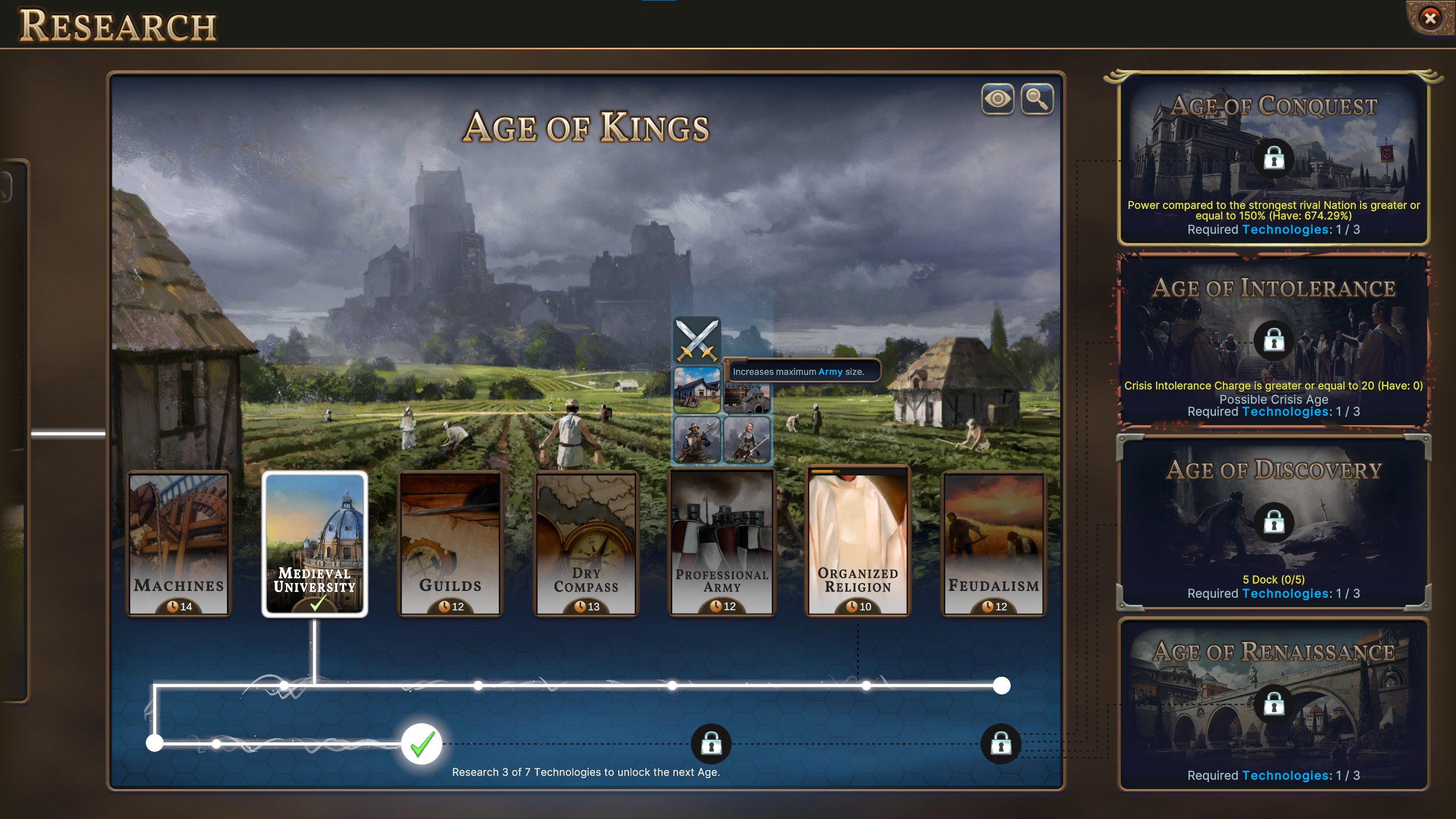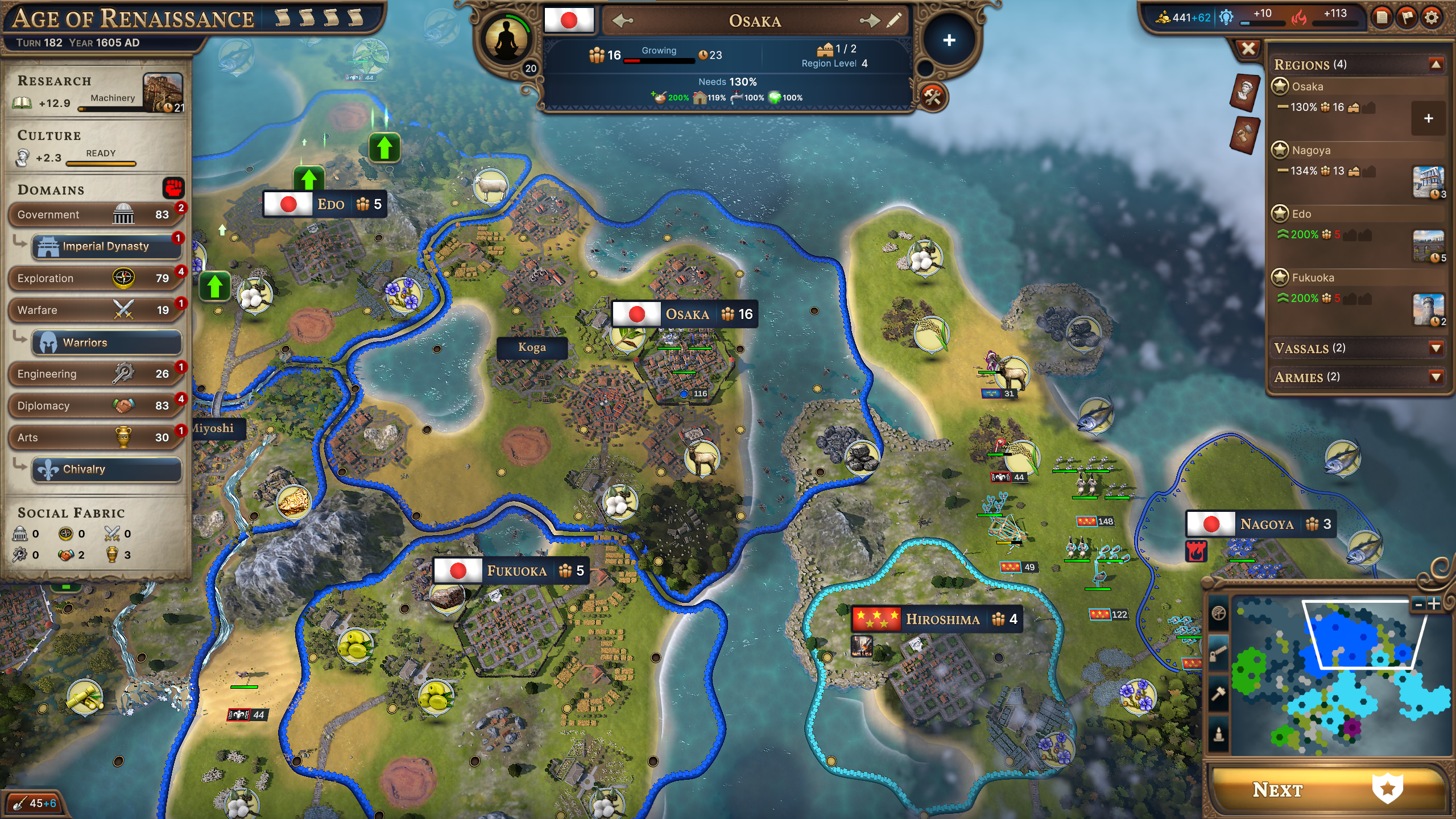Sid Meier's Civilization is one of the best games ever made. I've been playing and enjoying the series for four decades now. But as good as they are, they're also getting a little tired, and over the last few years a handful of studios have picked up on this weakness and tried, for the first time in a very long time, to take a shot at The King.
Endless Legend was the first to show that Civilization was vulnerable. Humankind looked great, then proved to be a disappointment. Old World, made by a studio with serious Civ pedigree, is great, but it doesn't have Civ's scope. None of these games were perfect, and none have come close to challenging Civ's sales, but the fact remains: the sharks are circling!
The latest to smell blood is Millennia, a 4X game that is being published by Paradox but, very importantly, was not developed internally by Paradox. It was made by C Prompt Games, and I regret to inform you that out of all the Civilization challengers we've seen emerge over the last few years, this is comfortably the worst.
Where do I even begin? Let’s start with the good stuff: Unlike some of the other games I mentioned above, which got creative with their settings and timelines, Millennia is going for a strictly Civ-like experience, dropping you on a dark map with one settlement and asking you to build, explore and research your way through the ages, meddling with economies and warfare along the way.
So far, so familiar. It's what the game promised to do differently that got (some?) people excited. Instead of just marching through broadly historical eras of humanity (which to be clear you can still do here), Millennia also has "ages" that can be impacted by decisions made by players, each one providing a radically different set of challenges and outcomes, some of which can even shift the historical timeline and push events into alternate history territory:
The other thing it does differently to Civ, and I think this had the potential to be the best thing about it, is break up some of its development and building into stuff you can directly construct (like you do in Civ) and stuff that you have to earn through accumulation and can then instantly assign/conjure. I really like it in principle; it means that while some units and buildings are the same for everyone, other powers, unlocks and troop types were only available to me depending on the numbers I was juicing from my civilization, and were thus much more personal and reflective of my playstyle than any pre-baked list of available units or powers.
It's a shame, then, that both of these things ultimately suck. As does everything else around them.

Millennia is a handful of very good ideas surrounded by a game that at turns fails to explain itself, breaks its own rules and is exhausting to be around. In my time with it I ran into so many complaints and issues that to single them out individually would condemn us all to a long and depressing list, so instead I'll just try and keep things broad.
For all the good ideas it has, how they're actually implemented is often haphazard, frustrating and at times completely broken, in ways--and I mean this sincerely, not in a "just trying to think of mean things to write" kinda way--that make you question just how thoroughly playtested this game was. Not in terms of bugs; those are technical hiccups–I mean in terms of systems working as they're supposed to work in the first place. The whole "Ages" thing can fall over once the AI gets going, for example, and the way you build on and exploit map tiles is a mess.
Millennia is almost completely devoid of charm, personality or immersion; menus and interfaces are drab, and while players are representing great nations of history, when it's time for diplomatic conversation, you're exchanging a limited selection of canned quotes with...a literal flag. It's hard to get personal with (or against) a flag.
The game looks nice in screenshots, but in action it's a disaster. Tile features rarely mesh visually with their neighbours, animation is slow, movement stodgy and the combat, man, it's bad. Combat is represented by a short animated sequence that looks like it's from the 1990s, and I simply cannot comprehend the decision to include it in The Year Of Our Lord 2024.

The whole thing just feels unfinished. Which is perhaps unsurprising given the presence of placeholder visuals in its announcement screenshots, but still. I never felt like I was playing a polished, modern strategy game for the PC. Instead, at almost every click, I felt like I was playing a shonky port of an even shonkier iPad game from 2011.
I don't know what's going on at Paradox on the publishing side of things, but this is the second game in the last few months now--after Cities: Skylines II's disastrous launch--that has hit the streets in bad shape, and the second unforced error when there really isn't much else going on in these genres to warrant a rushed release (I mean Paradox's continued launch missteps in recent years coincide with the company's decision to go public; you may draw your own conclusions from that).
There were good ideas here! With some more polish around them, and some extra work on the game's visuals, this could at least have been whipped into something passable. As it stands in March 2024, though, it's anything but.


